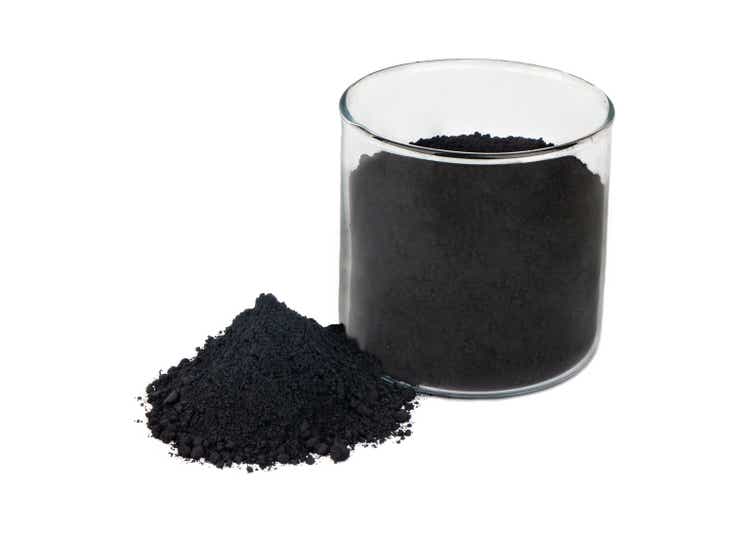
LOS ANGELES, CALIFORNIA - JUNE 18: Geena Davis attends "Thelma And Louise" 30th Anniversary drive-in charity screening experience hosted by MGM and Cinespia at The Greek Theatre on June 18, 2021 in Los Angeles, California. (Photo by Amy Sussman/Getty Images)
Getty Images
Two-time Academy Award winner Geena Davis created the Geena Davis Institute about 20 years ago. The Thelma and Louise and A League of Their Own legendary actress created this research institute when she really noticed the lack of female representation and diversity in kid’s shows and movies, when she first had her daughter.
On the institute’s website, Davis calls for an urgent attention regarding “race and ethnicity, LGBTQIA+, older characters, diverse body types and disability representation”, not just in kid’s shows, but in movies and TV shows as well.
Davis knows that she can have a positive and lasting impact thanks to her institute, if the industry truly commits to the efforts needed to be made in order to “fix media representation overnight.” The work of the institute includes “rigorous research and strategic partnerships’’ to empower media, studios and especially the industry leaders who really have the possibility to make both authenticity and representation, some of the highest priorities in Hollywood.
I spoke with Davis over Zoom about her work at the institute, her latest research and the state of the entertainment industry.
“Every single person, and I spoke to dozens upon dozens of people, they all said, ‘That’s not true anymore, that’s been fixed.’ And they talked about how they had fixed it in their studios or production company, and the thing was, it was very striking, but they were very sincere about wanting to do right by girls. They said, ‘We care about the hero passionately and we know we are doing right by them.’ So that made me realize that it was total unconscious bias. Therefore, if I could collect the data, I could go back to them to show that it was not true and there was in fact, a great gender disparity. So that’s what happened, that’s what I did at the beginning, over 20 years ago now.”
BENTONVILLE, ARKANSAS - JUNE 21: Geena Davis speaks onstage during the Bentonville Film Festival Awards Ceremony during the 11th Annual Bentonville Film Festival led by Geena Davis at The Momentary on June 21, 2025 in Bentonville, Arkansas. (Photo by Jason Davis/Getty Images for Bentonville Film Festival)
Getty Images for Bentonville Film Festival
She added: “It was amazing, their reaction was utter shock! They had no idea that this disparity existed. So it was truly unconscious bias and they thought that perhaps, if you have a lead female character, then you’ve covered women and all the rest can be male. So that started to change everything and we have made great progress.”
Now, the institute has expanded the research beyond female representation and one of the latest surveys done in June 2025, focused on API representation in the industry, which was a follow-up to their 2021 study. In the June 2025 survey, the key findings do show some progress regarding API representation in media.
For example, “From 2010 to 2024, there was a statistically significant — though modest — increase in API characters across all types of character (leads, supporting, and minor roles).”
API industry professionals who have responded to the survey also shared their own perception, which resulted in “38.9% API industry professionals feel industry-wide efforts to support API representation on screen over the past five years have gotten better, while most (52.4%) feel efforts have gotten both better and worse; 4.3% say it’s gotten worse.”
Or yet again, “About 62% of API industry professionals said they feel their voice is valued, a sharp increase from 2021 when only 43.5% surveyed said that they felt their voice was valued at work,” as well as “72% of API industry professionals say they’ve experienced micro-aggressions at work. However, this is a decline from 2021, when 80.9% said they experienced micro-aggressions at work.”
Some of the respondents cited characters from Netflix’s Never Have I Ever, Disney’s Moana, or A24’s Everything Everywhere All At Once as an inspiration.
There are still so many changes and improvements to be made in order to access equality and representation. While speaking with Davis, I shared with her a problem raised by One Day’s star Ambika Mod in GQ last May. Mod talked about the difficulties of booking more roles as a woman of color after the show was released on Netflix, especially compared to her white, male co-star. She said “I think we’re going to have very different careers. If I compare myself to someone like Leo [Woodall], I’m always going to come up short, because there’s a privilege there that I don’t have access to.”
She added: “Being brown is not particularly easy in this industry. You don’t get the same opportunities. You don’t get the same ascension. I’ve been the lead of two very successful, critically-acclaimed TV shows and I still feel like I have to keep on proving myself. A lot of my white peers don’t really have to tackle that.”
On Mod’s declaration, Davis said, “We haven’t studied the likelihood of underrepresented groups of society not being hired again, that’s a fascinating subject actually! It’s not something that we have studied but certainly, it does take place, because we know people of color have far fewer characters than the segment of the population.”
She added: “Our hope, our goal, is that on-screen would reflect the population as it is. The percentage of female is incredibly diverse in a multitude of ways, and we’re short of those goals, but that’s what we’re working towards.”
TORONTO, ON- SEPTEMBER 8 - Geena Davis, actor and founder of Geena Davis Institute speaks at the Toronto International Film Festival hosts a Share Her Journey Rally for Women in Film. at Roy Thompson Hall in Toronto. September 8, 2018. (Steve Russell/Toronto Star via Getty Images)
Toronto Star via Getty Images
Another very important sector of society is also being studied by the institute, which is the representation of women in STEM (Science, technology, engineering, and mathematics) careers.
“There’s a long way to go, but one of the fascinating things we found in that last study, was that when there were female characters working in STEM fields, they were often shown to have to give up quality life, of personal life, for their careers. And also, they were subjected to discrimination on-screen, like it’s bad enough in real life, but they had to be discriminated again on-screen. So yes, a lot of ways to go in that area as well.”
The institute soon found out that most women who responded to the survey quoted Dana Scully from X-Files as an inspiration, but the response also shows how very little women in STEM careers are depicted on-screen.
Davis said, “If it happens on-screen, it will happen in real life. That’s an amazing study that we did about Scully, how one STEM character can have such an enormous impact. Something like 62% or 64% of women currently working in STEM named Dana Scully as the reason that inspired them. Imagine what would happen if we had lots of female characters in STEM, we’d make tremendous progress. But that’s what happens, if you see it, you can be it, that’s our motto.”
To conclude our conversation, I asked Davis if there is a STEM role or a usually male-dominated movie genre, that she would like to try. She said, “I love the roles of scientists, when I made The Fly, Jeff Goldblum was an incredible scientist, and I was his girlfriend. But I love that scientific knowledge so, maybe I’ll be able to do that someday.”
.png)








 English (US) ·
English (US) ·